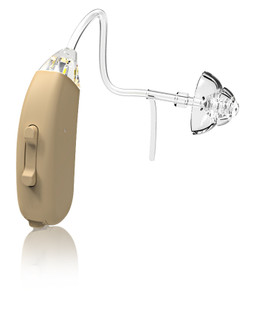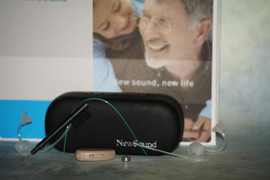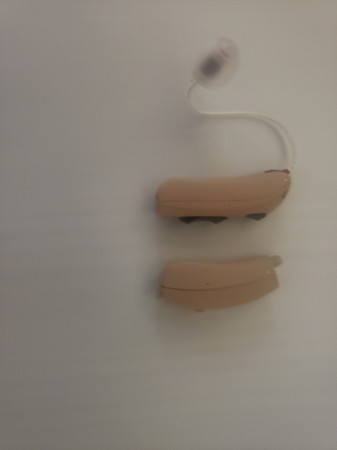Which Hearing Aid is More Cost Effective: Rechargeable or Disposable Batteries?
Posted by DR Paul on Jun 25, 2023
Choosing the right hearing aid can be a difficult and expensive process. One of the main decisions that you will need to consider is whether you want a device that runs on rechargeable batteries vs. disposable batteries. Both options come with their own benefits and disadvantages, but one of the most important factors to consider is cost. In this blog post, we will be discussing the cost comparison between rechargeable hearing aids and disposable battery hearing aids to help you make an informed decision.
Upfront Cost:
When it comes to buying hearing aids, upfront cost is one of the most significant factors to consider. Rechargeable hearing aids tend to have a higher initial purchase price than disposable battery hearing aids. This is because these devices come with built-in rechargeable batteries and often have more advanced technology that can be more expensive to produce. On the other hand, disposable battery hearing aids are usually less expensive upfront since they don't come with a built-in battery. This means that the cost of the device is primarily determined by the level of technology that you choose.
Battery Replacement Costs:
Even though disposable battery hearing aids have a lower upfront cost, they do require frequent battery replacements which can add up over time. The average lifespan of a disposable battery for a hearing aid is between 5-14 days, depending on the battery type and level of use. Over the course of one year, this adds up to around 40-100 batteries per hearing aid. These batteries can cost anywhere from $0.50 to $2.50 each, depending on the type and brand. Rechargeable hearing aids, on the other hand, do not require battery replacements, which can save you money in the long run.
Charging Costs:
One of the costs associated with rechargeable hearing aids is the cost of charging the device. Most rechargeable hearing aids come with a charging station that plugs into an electrical outlet. The cost of electricity varies by location, but you can expect to pay around $0.12 per kilowatt-hour. If you charge your hearing aids for 2 hours per day, this would cost you around $0.09 per day, or $33 per year. However, some rechargeable hearing aids come with portable charging cases that can be charged on-the-go, eliminating the need for an electrical outlet.
Environmental Impact:
When it comes to the environmental impact of hearing aids, rechargeable batteries tend to be more eco-friendly than disposable batteries. This is because disposable batteries are made from materials like lithium, mercury, and cadmium, which can be harmful to the environment when not disposed of properly. Rechargeable batteries can be used for years, eliminating the need for frequent disposal and reducing the amount of battery waste that ends up in landfills.
Convenience:
Finally, it's important to weigh the convenience factor when it comes to choosing between rechargeable and disposable battery hearing aids. Rechargeable batteries eliminate the need for frequent battery replacements, which can be a hassle for some users. However, rechargeable hearing aids do require regular charging, which can be inconvenient if you forget to charge the device or don't have access to an outlet. Disposable battery hearing aids are generally more convenient in this regard, as you can simply replace the battery when it runs out.
Conclusion:
When it comes to choosing between rechargeable and disposable battery hearing aids, there are several factors to consider. Rechargeable hearing aids have a higher upfront cost but can save you money in battery replacement costs and tend to be more eco-friendly. However, they require regular charging, which can be inconvenient. Disposable battery hearing aids have a lower upfront cost but require frequent battery replacements and can be more harmful to the environment. Ultimately, the choice of which hearing aid to purchase depends on your personal preferences and priorities. Be sure to weigh all of the factors carefully before making your final decision.










